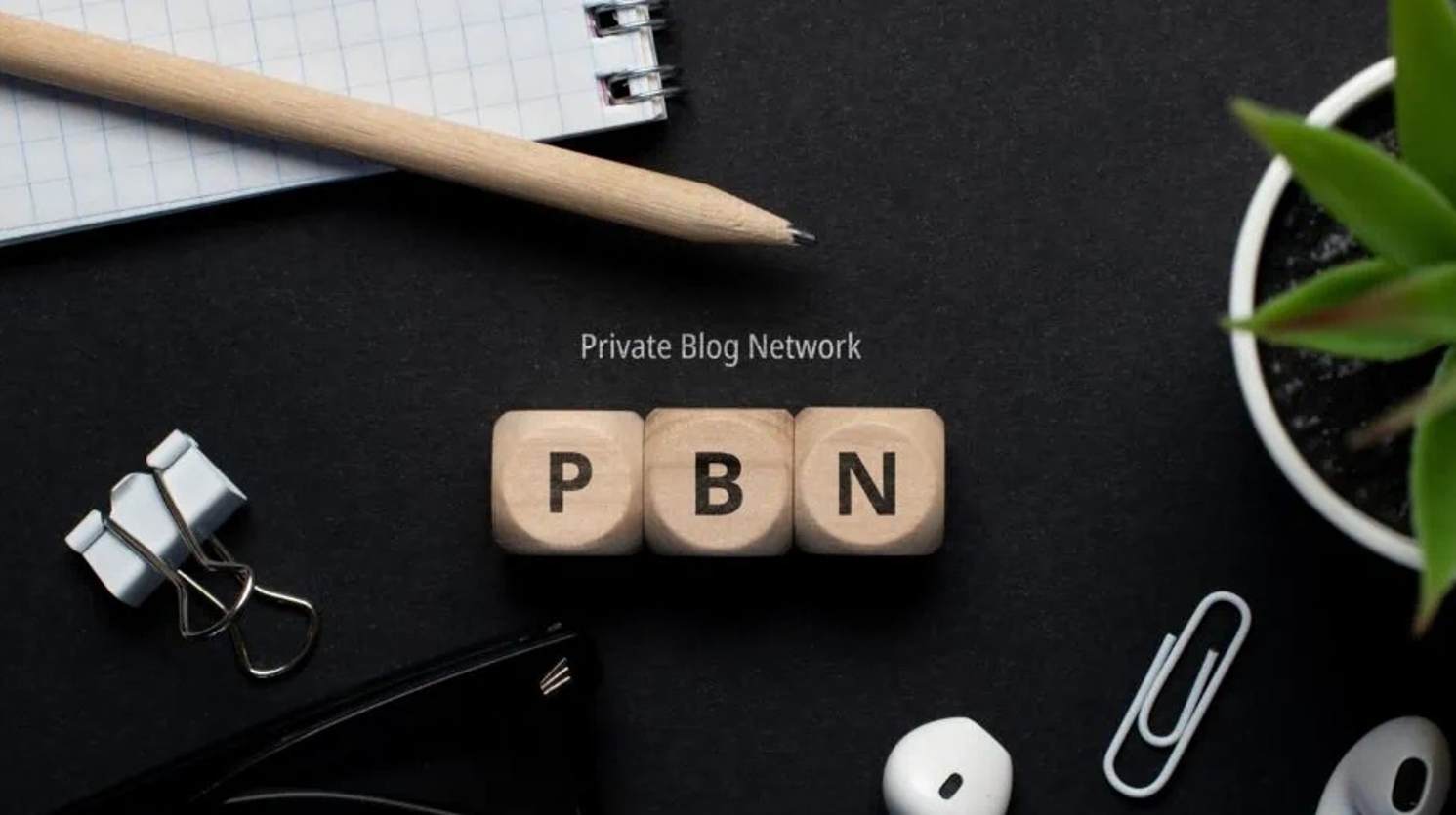In a dramatic turn of events for the SEO community, Google, the search engine giant, has recently executed a mass deindexing of thousands of Private Blog Network (PBN) articles between 2023 and 2024.
The move has sent shockwaves through the online marketing sphere, prompting PBN owners to reassess their strategies and tactics although many don’t seem to care and will continue to sell links and blog posts on dodgy sites.
PBNs, a common tool in the arsenal of SEO practitioners, are networks of websites created for the sole purpose of boosting the search engine ranking of a primary website.
The blog networks typically consist of numerous interconnected sites, often with low-quality content and questionable authority, all designed to manipulate search engine algorithms into favorably ranking the target site.
However, Google’s crackdown on PBNs has intensified over the past year, with thousands of articles associated with such networks being swiftly deindexed from search results. The decisive action by Google signifies a clear escalation in the battle against manipulative SEO practices.
The deindexing of PBN articles has left many website owners scrambling to salvage their rankings and traffic. For those who relied heavily on PBNs as a shortcut to SEO success, the consequences have been severe, with significant drops in search visibility and organic traffic.
Industry experts have long warned against the use of PBNs, citing the risks of penalties from search engines and the potential long-term damage to a website’s reputation.
Google’s latest crackdown serves as a stark reminder of these risks and underscores the importance of adopting ethical and sustainable SEO strategies.
In response to the deindexing wave, SEO professionals and website owners are being urged to prioritise high-quality content, natural link building, and user-centric optimisation techniques.
Building a strong online presence through genuine engagement and valuable content is now more crucial than ever before.
What Many PBN Site Owners Failed To Grasp – It Could Of Been Avoided
PBNs, long seen as a shortcut to boosting website rankings through manipulative link building, have fallen under Google’s scrutiny yet again. However, what sets this deindexing apart is the glaring evidence of negligence and spammy behavior exhibited by PBN operators.
What many PBN site owners failed to grasp was the significance of what is commonly referred to as “footprints” in the SEO world.
The footprints are the identifiable patterns or markers that connect different websites within a network. Google’s algorithms have become increasingly adept at detecting these footprints, leading to the mass deindexing of PBN articles.
A deeper look into the operations of these PBN sites reveals a troubling mentality focused solely on monetary gain at the expense of quality and relevance. Instead of fostering genuine engagement and providing valuable content to users, PBN operators prioritized the quick influx of link money.
The primary issues plaguing these PBNs include:
- Spammy Content: PBN articles were often filled with low-quality, keyword-stuffed content aimed solely at manipulating search engine rankings, rather than providing value to readers.
- Poor Site Structure: Many PBN sites lacked proper organisation and navigation, making it difficult for users to find relevant information or engage with the content.
- On-page Technical SEO Neglect: Basic on-page SEO elements such as meta tags, headings, and image optimisation were often overlooked, further diminishing the sites’ credibility in the eyes of search engines.
- Link Spamming: PBN operators indiscriminately inserted links into articles without considering relevance or quality, solely for the purpose of monetisation via paid link placements.
The consequences of these careless practices have been severe, with Google deindexing a significant portion of PBN articles, effectively rendering them invisible in search results. This not only undermines the credibility of the sites involved but also serves as a warning to others engaged in similar practices.
The solution to avoiding such penalties is clear but requires a fundamental shift in mindset from PBN operators:
- Focus on Quality: Instead of prioritizing link quantity, focus on producing high-quality, relevant content that adds value to users’ lives.
- Maintain Site Integrity: Ensure that PBN sites adhere to ethical SEO practices, including proper site structure, technical optimisation, and content relevance.
- Stop Link Spam: Avoid the temptation to insert irrelevant or excessive links into articles purely for monetary gain. Instead, focus on building natural, organic links through genuine engagement and relationships.
- Stay Relevant and Helpful: PBN sites should strive to be genuine sources of information within their respective niches, offering valuable insights and solutions to users’ queries.
Careless and PBN Scam Operators Still Selling Links Despite Deindexing
In a brazen display of disregard for integrity and ethics, numerous Private Blog Network (PBN) operators have also been caught red-handed continuing to sell blog posts and links on PBN sites that have been deindexed by Google. The revelation sheds light on the careless, selfish, and scammy nature of these unscrupulous individuals engaged in junk link sales.
Despite the clear evidence that their PBN sites have been rendered ineffective by Google’s deindexing efforts, these operators are shamelessly peddling links to unsuspecting buyers, knowing full well that the content won’t see the light of day in search engine results.
This alarming trend underscores the lengths to which some PBN operators are willing to go in pursuit of profits, regardless of the consequences for their clients or the integrity of the SEO ecosystem.
By continuing to sell links on deindexed PBN sites, these operators are engaging in a form of scam, deceiving buyers into investing in a service that offers no real value or benefit. Not only does this practice constitute a blatant violation of trust, but it also perpetuates the cycle of spammy SEO tactics that Google is actively working to eliminate.
Furthermore, it highlights the need for greater vigilance and discernment among those seeking to improve their website’s search engine rankings.
In a landscape rife with opportunists looking to exploit loopholes and shortcuts, it is crucial for website owners and SEO practitioners to exercise due diligence and prioritize legitimate, ethical strategies.
The revelation that careless and junk PBN scam operators are still selling links on penalised sites is a troubling reminder of the darker side of the SEO industry
A Paradigm Shift In The SEO Landscape? – Hardly Not
While the deindexing of PBN articles may have dealt a blow to some website owners, it also presents an opportunity for a paradigm shift in the SEO landscape.
It’s evident that despite the setback caused by the deindexing of Private Blog Network (PBN) articles, a faction of website owners operating within this sphere seems resilient in their commitment to questionable practices.
The continued disregard for quality and persistence in selling spammy links highlight a concerning trend. These operators seem poised to perpetuate their deceptive schemes, oblivious to the evolving SEO landscape and the opportunities it presents for ethical and sustainable growth.
PBN operators persisting in exploiting customers by peddling links on penalized PBN sites of abysmally low quality demonstrate a flagrant disregard for industry standards and ethical conduct.
Their blatant neglect of quality standards, valuable content creation, and fundamental on-page technical SEO undermines the integrity of the SEO ecosystem.
Here’s a list of PBN sellers to steer clear of, which may expand as we conducts further assessments and reviews
- Guestpostlinks.net (Also sells overpriced fake SEO metrics blogs *Scam PBNs*)
- Rabbiitfirm.com (Super spammy PBN Inventory and fake metrics blogs) + Penalised sites
- icopify.co (Unprofessional freelancers and fake metrics blogs)
- icopify.com (Unprofessional freelancers and fake metrics blogs)
- Extremebacklink.com (Super spammy PBN Inventory and fake metrics blogs) + Penalised sites
- Adsy.com – Promotes and sells fake SEO metrics (manipulated authority) PBN sites.
- Seoclerks.com – No.1 SEO, PBN and link building scam freelance platform. (refunds impossible)
These entities exemplify practices that run counter to sustainable and reputable SEO strategies. Caution should be exercised when engaging with such operators to avoid potential penalties and reputational damage.
What Else Should Be Avoided?
A cautionary note rings loud and clear: steer clear of certain digital marketing companies and guest post-selling sites. While the world of content outreach and marketing services teems with excellent options, a discerning eye must be cast upon those entities that engage in questionable practices.
Among the myriad offerings in this sphere, it has come to light that several marketing outfits and guest post placement services simply resort to acquiring link placements from online providers like iCopify, only to subsequently inflate prices by a staggering 80% when reselling to their own clients.
In light of these revelations, stakeholders are urged to adopt a discerning approach, scrutinizing prospective partners with meticulous attention to detail.
Do PBNs Still Work?
In essence, success with PBNs depends heavily on responsible and diligent management.
Yes, PBNs (Private Blog Networks) can still be effective, but with several caveats. They are only effective when managed properly by individuals who prioritise maintenance, adhere to search engine standards, publish valuable content, avoid spammy practices like forced anchor text insertion, possess strong technical SEO knowledge, and actively work to remove any footprints.
By focusing on creating valuable content and building genuine relationships with their audience, website owners can establish a sustainable foundation for long-term success in the ever-evolving world of search engine optimisation.
As Google continues to refine its algorithms and crack down on manipulative tactics, the message to PBN owners and SEO practitioners is clear: the era of shortcuts and quick fixes is coming to an end, making way for a new era of transparency, authenticity, and quality in online marketing.
This phenomenon echoes a similar event that occurred in 2014 when Google launched a massive crackdown on PBNs, deindexing numerous websites employing such strategies.
The recurrence of these actions underscores the determination of search engines to maintain the integrity of their results and prioritize user experience over attempts to artificially boost rankings.
While PBNs may still hold some effectiveness when managed responsibly, the risks associated with their use are increasingly apparent along with the loss of a great deal of money when paid PBN links/posts/urls are removed from Google and your rankings begin to tank.
The mass deindexing of PBN articles and sites between 2023 and 2024 can also be directly attributed to the Google October Core Update.
However, if PBN owners simply put effort into maintaining healthy., helpful and non spammy blogs content might just still be showing in Google’s search results.
The update, like many others implemented by Google, aimed to refine the search engine’s algorithms to provide users with more accurate, relevant, and high-quality search results.
As part of its ongoing efforts to combat manipulative SEO tactics, the October Core Update targeted PBNs, identifying and penalizing websites that relied on such networks to artificially inflate their rankings







